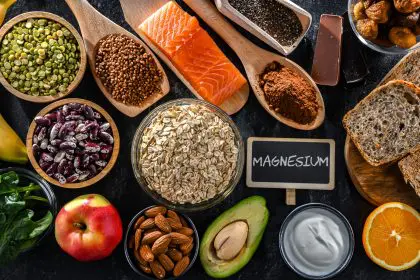Fried chicken is undeniably one of the most beloved comfort foods worldwide. Its crispy skin, juicy interior and rich flavor make it a favorite in many households and fast-food chains. While indulging in fried chicken may seem harmless, it’s crucial to understand the potential health concerns tied to its regular consumption. What many don’t realize is that fried chicken can come with serious health risks that may affect your long-term well-being.
In today’s fast-paced world, where convenience often overshadows nutrition, many people overlook how fried foods — particularly fried chicken — can negatively impact their health. Knowing the risks associated with this popular dish can help you make informed decisions about your diet. So, before you reach for that next drumstick, let’s explore the five major health concerns that come with eating fried chicken.
1. High cholesterol levels
A significant health concern tied to fried chicken consumption is the increase in cholesterol levels. Fried chicken is typically cooked in oils that contain high amounts of saturated fats. These fats raise your LDL cholesterol (often referred to as “bad cholesterol”), which can lead to a host of cardiovascular issues.
Studies have shown that diets rich in fried foods are strongly linked to elevated cholesterol levels, increasing the risk of heart disease. Saturated fats clog arteries and reduce blood flow, making it harder for your heart to function efficiently. As a result, consistently consuming fried chicken puts you at a greater risk for heart attacks and strokes.
To put this into perspective, consider the emotional weight of knowing that your favorite meal might be contributing to life-threatening conditions. Understanding this connection between fried chicken and high cholesterol may serve as a wake-up call to reconsider how often you include this dish in your diet.
2. Weight gain and obesity
Another common health concern associated with fried chicken is its contribution to weight gain and obesity. Fried chicken is typically calorie-dense because of the frying process and the high-fat content. When consumed in large portions or frequently, these extra calories can accumulate, leading to unwanted weight gain.
Obesity is a growing global epidemic, and the correlation between fried foods and weight gain is well-documented. The added oils used in frying chicken add more calories than most realize, pushing your daily caloric intake over the recommended amount.
Excessive weight not only affects physical health but also impacts emotional well-being. The frustrations of managing weight can lead to feelings of guilt, anxiety and even depression. In the long run, obesity also increases the risk of developing other health complications, such as diabetes, joint pain and heart disease.
3. Increased risk of heart disease
Heart disease remains one of the leading causes of death globally, and unfortunately, the frequent consumption of fried chicken plays a part in this statistic. Fried foods — especially chicken — are often cooked in unhealthy oils that promote the buildup of plaque in your arteries.
Over time, this plaque hardens, narrowing the arteries and reducing blood flow to the heart. This process — known as atherosclerosis — can lead to severe heart conditions, including coronary artery disease, heart attacks and even heart failure. The fats used in frying chicken are often trans fats, which are known for their harmful effects on heart health.
When you think of the joy and comfort fried chicken brings, it’s unsettling to realize that it could be slowly damaging your heart. The connection between diet and heart health is undeniable, and taking steps to reduce your intake of fried chicken can protect your heart in the long run.
4. Potential for high blood pressure
Fried chicken is often seasoned heavily with salt, adding flavor but also raising the risk of high blood pressure. Sodium — found in salt — is a primary contributor to hypertension, a condition where the force of blood against your artery walls is consistently too high.
High blood pressure, if left untreated, can lead to more severe conditions such as heart disease, stroke and kidney damage. What’s alarming is that high blood pressure often has no symptoms, making it a silent threat. The excess salt and unhealthy fats present in fried chicken make it particularly dangerous for those already at risk of hypertension.
The emotional impact of high blood pressure should not be underestimated either. Knowing that your favorite food could be silently affecting your health is a sobering thought. Balancing flavor and health becomes essential when considering the long-term impact of consuming fried chicken regularly.
5. Increased risk of type 2 diabetes
One of the lesser-known but equally concerning health risks tied to fried chicken is the potential development of type 2 diabetes. While many associate diabetes with sugary foods, fried foods like chicken also contribute to insulin resistance, a precursor to type 2 diabetes.
The oils used in frying — particularly when reused — contain harmful compounds that can interfere with your body’s ability to regulate insulin. Regular consumption of fried chicken can cause spikes in blood sugar levels, leading to chronic health problems over time. Type 2 diabetes is a serious condition that can lead to numerous complications, including nerve damage, vision loss and cardiovascular diseases.
The emotional toll of managing diabetes is significant, as it often requires lifelong treatment and lifestyle changes. The connection between fried foods and diabetes highlights the importance of dietary choices in preventing this widespread condition.
This story was created using AI technology.












